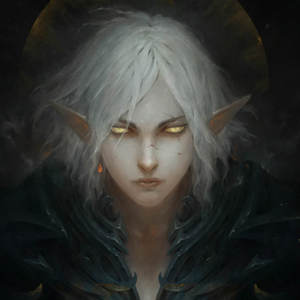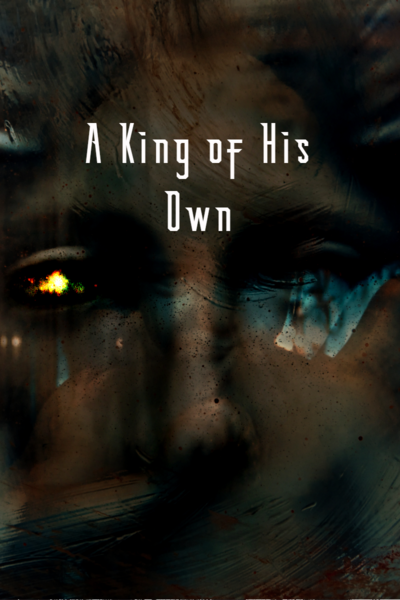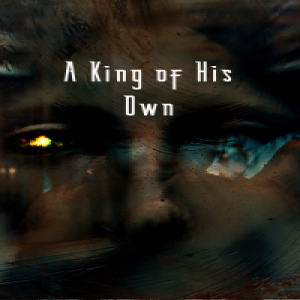Nearly two weeks had passed since the Sarkanian victory at what scholars called the Battle of Vaise, named after the valley it had taken place in and the village nearby. In that time the Sarkanian army marched for a little over eighty miles, led at the front by Arian Sarka, Harik Wulfsurd and Edmund Gray, with the Lavellan king Armand riding behind them in a steel cage mounted on a wagon.
Over a thousand Lavellan knights and noblemen marched with the Sarkanians as prisoners of war, the most important tied to wagons and the rest forced to walk with the soldiers who had bested them. Whenever the Sarkanians approached a walled town, or a fortification, or bridge crossing or sallied garrison, several of these high ranking prisoners were taken to the front and put on show beside their king, who had no choice but to grant the invading force free passage and immunity.
They were untouchable, and Arian marched them north along the River Saiga, past dozens of villages and towns, with their heraldic griffins flying freely from banners held aloft by knight-bearers and noblemen who bathed in sun and glory.
One day during their march a small force of several hundred Lavellan guards blocked a bridge over the river and refused to let the Sarkanians cross, so Harik Wulfsurd dragged their king and several of their surviving noblemen into the open and prepared to execute them right then and there. At the behest of Armand, who demanded that the Lavellan guards surrender, they not only dropped their weapons but surrendered a significant amount of supplies gathered in a nearby town. Thus, the army of men and horses grew a little longer, and a little fatter, and followed the road towards Chaverne with nothing less than total victory guaranteed.
Eventually the terrain changed from gentle, rolling plains that stretched to the horizon, to valleys and passes surrounded by walls of snow-capped mountains. Yet the further they moved from grasslands and farm fields, the wealthier the populace seemed to become. Farmers gave way to artisans, loggers, herbalists and winemakers. Vineyards dotted the sides of hills, and country estates became more common.
After a while the River Vaise curved into a series of three small lakes, all close together in a line, that looked as though giant pebbles had fallen to the ground and left imprints that filled with water. On the north-eastern side of these lakes, the city of Chaverne was built on a hill that rose over several dozen outlying estates and villages. Its architecture was as though out of a fairy tale, with beautiful arches and spires, tall towers around a central palace, and walls with towers and ballistae. Yet most noticeable to Sarkanian eyes was that Chaverne was painted white, albeit faded from years of exposure. Even with the light brown earth of the land around it, Chaverne shone lighter still like a jewel. The jewel of Lavell, they had called it. Soon it would be the jewel of Sarka.
Yet on that day, the fields were empty, and the city shut. The Sarkanian army marched up to the gates only to find them barred, so Prince Arian put their King Armand on a horse and rode with him to the wall.
“Tell them to open the gate,” Arian ordered.
Armand spat down from his horse, then looked up at the men on the wall who were watching them. “I am King Armand I of Lavell. You know who I am,” he yelled, his Lavellan accent thick. “And I order you to open this gate!”
Several of the soldiers on the wall looked at each other, but none of them replied to him, or moved from their posts.
“What is this?” Arian asked, impatient. “Get them to open the gate.”
“Give them time, Prince Arian. Give them time.”
After several minutes a soldier appeared above the gate in full plate armour, one arm resting on the wall battlements and another on his sword hilt. He wore a thick moustache, and a large yellow plume on his helmet, and leaned over to look at them with the plume sticking out from the wall like some bent stick. “King Armand. So, it is true,” the man said, his voice loud, yet full of disappointment.
“It is true,” Armand repeated. “The battle was lost, and I am now a prisoner. Yet we are all of us still bound by chivalric virtues; them by honour and mercy, us by generosity and nobility. They are cold, and hungry, and it seems we must extend our famous Lavellan hospitality, no?”
The officer didn’t react to Armand’s attempt at humour, and instead looked over the Sarkanian column that stood waiting on the road. There were enough of them to take the city by force, should they need to do so.
“Forgive me, my king, but I find myself confused as to the exact nature of this hospitality. Are we to give our city to the invaders, or are we merely to host them?” He asked.
“Unless you plan to disobey me, we have no choice in the matter,” Armand replied.
Then Arian spoke, calling up to the wall with a clear voice: “You will hand the city to us, sir knight, until such a time as we deem to return it.”
“And who are you, Sarkanian?” The Lavellan asked.
“Arian Sarka.”
“The child of the king of my enemy,” said the knight, offering Arian a slight bow. “But where is the king himself?”
“Fallen.”
The knight nodded, then stepped back from the battlements and shouted an order. After a few minutes there came the sound of men working behind the gate to remove a great wooden bar, and it opened to reveal several guards and the yellow-plumed officer overseeing the raising of an inner portcullis that had gone unseen.
Arian took Armand’s horse by a rope, then led the king’s mount back to the front of the army column where Wulfsurd, Gray, Colbert and Anselm waited. Due to their part in the victory at Vaise, the Lord Colbert and Sir Anselm’s influence had grown greatly. Sir Anselm was to become a Lord Anselm, and Lord Colbert had been delegated a trusted advisor to Caden in place of several previous lords who had fallen in combat, though that was yet to be widely known.
Though rumours were abound of Caden’s survival, only a select few knew the truth of it. King Armand had spent the better part of two weeks trying to figure out if Caden was truly alive, and if he was still with the army or if he had been sent home to recover from his wound. If Caden was no longer present, then Armand knew he would have a much easier time removing the Sarkanians from his city. Arian was a talented warrior, and Wulfsurd was a great bear with more wit than he used, but Caden was quickly becoming a lion like his father. Armand had once heard an adage about lions and sheep, and it was not lost on him the divine luck he had reaped when both lions fell. He could only hope now that they remained fallen.
After a short while the yellow-plumed knight rode out on horseback and greeted the Sarkanian lords and his king. “I will escort you all to the chateau, if that is your wish,” he told them.
“It is,” Arian replied. “The lords and several hundred of the kingsguard will occupy the Chateau under our direct command. Sir Anselm, you will occupy the rest of the city and organize the army. We will take over barracks, watch-houses, towers and armouries. Any Lavellan guards and soldiers are to return to civilian life and remain unarmed until our peace talks are completed, and our prisoners are to be locked away in the city dungeons. We will, however, make allowances for certain Lavellan nobles and knights to stay in the Chateau under house arrest.”
“Right y’are,” Sir Anselm replied, turning his horse around and riding back along the column to begin organizing the men.
“Let us go then, sirs,” the Lavellan knight said, then turned around on his horse and led into Chaverne.
Chaverne was a surprisingly wealthy city, and very few of its citizens lived in what the Sarkanians would consider ‘poverty’. They were all reasonably dressed, clean and well-fed, and there were no obvious lingering odours except for the occasional livestock yard they came across.
It was hard to admit, but Chaverne made where they had come from look uncouth and depressing in comparison. Certainly, Chaverne had more colour, more vibrance, and more character – with its cobbled roads that wound uphill and its archways that opened into traders’ markets and private residences.
“I wouldn’t mind an estate here myself,” said Wulfsurd as he rode.
“I wouldn’t bother,” replied Arian. “They’d hang you based on smell alone.”
Wulfsurd suddenly looked hurt, and raised his arm to sniff under it only to recoil. Arian laughed and pressed on.
Over time the Sarkanian army began to split into sub-units under the shouting command of Sir Anselm. They veered off from the main column, which grew smaller and smaller as they moved out into the city to occupy its barracks, guard quarters and armouries. The Lavellan citizens watched them do this, silent and offering no resistance, until only the highest nobles and several hundred of the kingsguard remained.
“They don’t seem to happy to see us, do they?” Lord Gray asked rhetorically.
“And nor would you, were our situations reversed,” answered King Armand, riding behind them with his head down in shame.
They continued to ride uphill, eventually coming to an inner ring of wall with a twin portcullis gate separating the rest of the city from the chateau that lay behind. The Chateau d’Chaverne was equal parts formidable castle and beautiful palace, the primary residence of the king of Lavell and his place of court and military governorship. There were dozens of Lavellan guards there, well-armoured soldiers wielding pikes and swords, but as the Sarkanians crossed under the gate they lined up in defeat to hand their weapons to their conquerors.
“Make sure to search every corner of the chateau,” Wulfsurd ordered gruffly. “I want no surprises waiting for us, no place for a hidden knife to be found by our foe.”
Arian dismounted, flanked by several of the kingsguard, and waved several covered wagons and carriages through the gate that contained those miscellaneous items of status and command that they would need.
“Arian, myself and Lord Gray will busy ourselves preparing the chateau,” Wulfsurd told him.
“Don’t take too long,” Arian replied. “I’m sure King Armand grows restless.”
Wulfsurd nodded and rode away to oversee another group of men, while Armand sat waiting in the saddle of his horse. “Young Prince Arian,” he said, “perhaps now I might be released, what with my escape an impossibility?”
Arian looked at him, momentarily suspicious, then gave a nod. “You may,” he said, and gestured for a guard to unlock the iron chain that bound his wrists.
Once free Armand sighed in relief, then dismounted and hit the ground with a surprising spring. “Ah, how nice it is to be home again,” he said, looking up at the blue and white banners of Lavell that still hung from the chateau’s outer walls.
“Come, King Armand,” said Arian. “You can give me a tour.”
Armand turned back to the prince, a grin creeping across his face that made Arian’s skin crawl. “Of course, Prince Arian,” he replied, his Lavellan accent thicker than it had ever been. “Of course.”











Comments (0)
See all